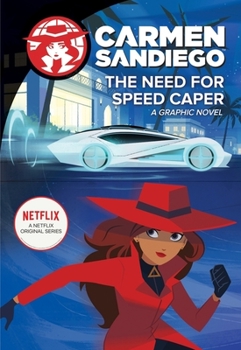The Need for Speed Caper
(Book #4 in the Carmen Sandiego Graphic Novels Series)
Select Format
Select Condition 
Book Overview
Adventure awaits in this full-color graphic novel, based on the Netflix series starring Gina Rodriguez. Take in all the action and excitement of Dubai and get a taste of geography, culture, and history with Carmen Sandiego--the world's greatest thief
Format:Hardcover
Language:English
ISBN:0521869110
ISBN13:9780521869119
Release Date:August 2006
Publisher:Cambridge University Press
Length:552 Pages
Weight:2.05 lbs.
Dimensions:1.5" x 6.2" x 9.4"
Customer Reviews
5 customer ratings | 5 reviews
There are currently no reviews. Be the first to review this work.




















